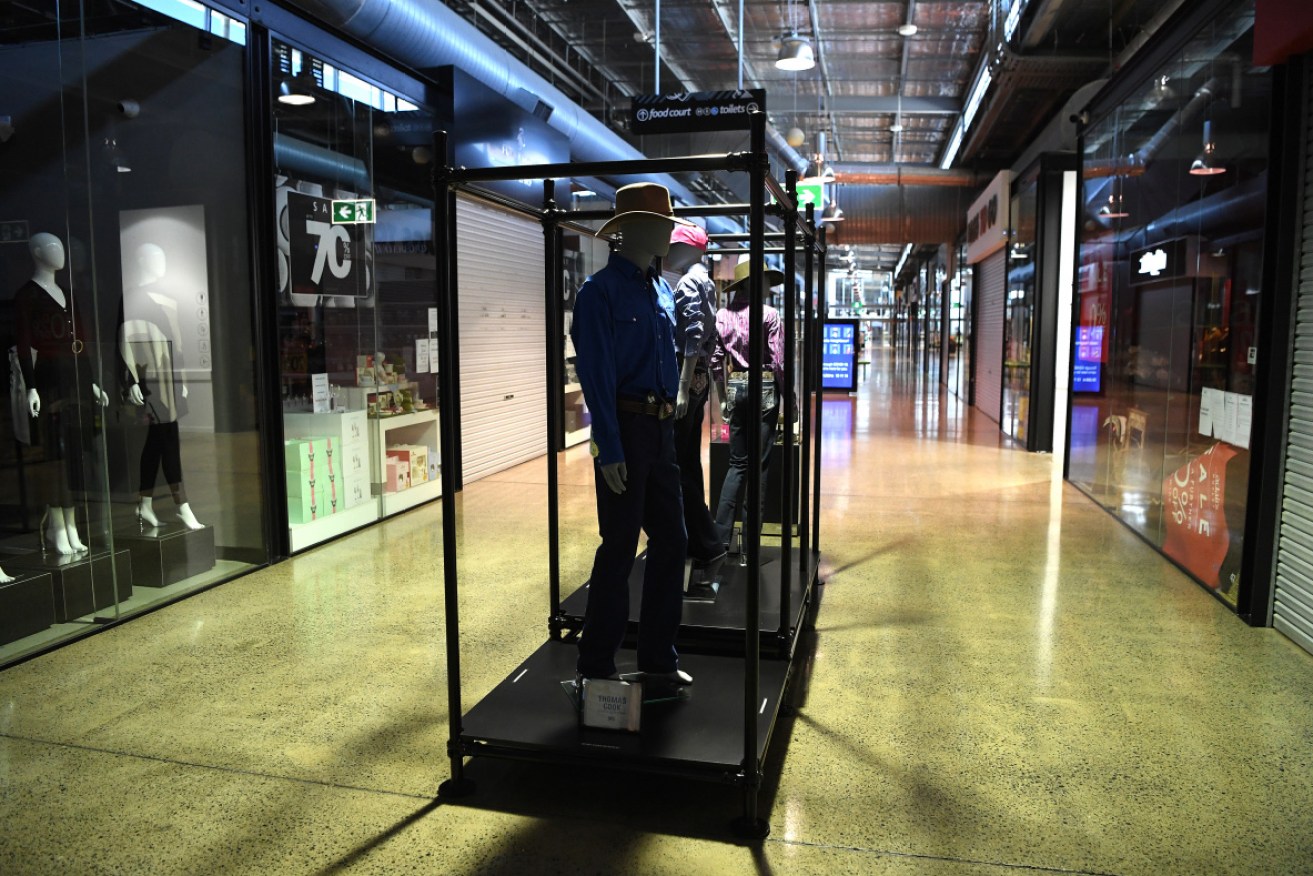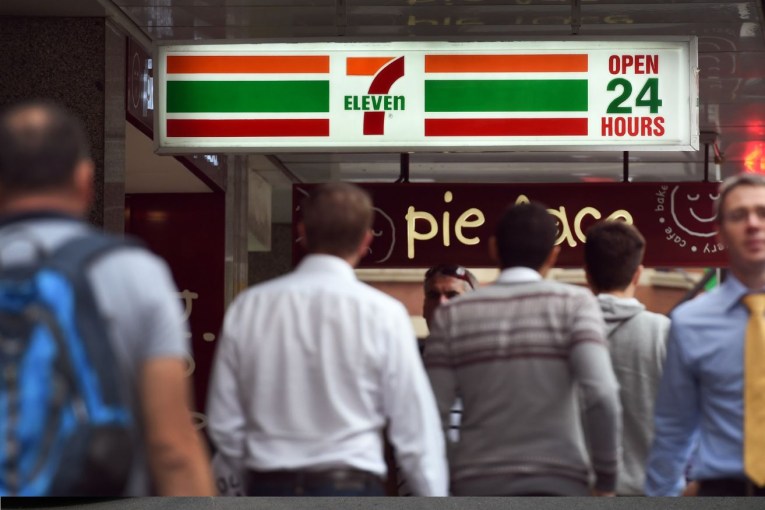Retail chains look to throw open the doors as virus restrictions relax


A deserted outlet centre in Brisbane, with most shops closed. Photo: AAP
As Australian states begin to ease coronavirus restrictions, national retailers are also planning to reopen their doors to shoppers.
Many of the country’s biggest chains abruptly closed and stood down or sacked thousands of workers when social distancing measures were introduced in March.
Now – with NSW, Queensland, the Northern Territory and Western Australia beginning to ease measures amid falling numbers of new cases – chains such as Myer, Athlete’s Foot, Clarks and Mossimo are looking at ways to get sales moving.
NSW, the state hit the hardest by the coronavirus, will relax some measures from Friday. Premier Gladys Berejiklian said on Tuesday she expected an uptick in retail activity during May.
“We know that for many people, they’ve been cooped up in their homes for a number of weeks, and with the exception of exercising, medical needs or buying what they need to or going to work, many people have been isolated,” Ms Berejiklian said.
She encouraged retailers to open, provided they and their customers followed strict social distancing rules.
“Make sure that when you’re in those shops, there’s good social distancing but also that you follow all the hygiene requirements,” she said.
Tweet from @TheTodayShow
Accent Group, which owns Athlete’s Foot, Platypus and Hype DC, will reopen its more than 500 stores across Australia and New Zealand in the next fortnight. But it expects online sales to be the focus of growth for some months.
The company closed its stores for four weeks on March 27. Since then, digital sales had grown from about $250,000 a day to between $800,000 and $1.1 million a day, it said.
Chief executive Daniel Agostinelli said there had been a “seismic and most likely enduring” shift towards online shopping during the COVID-19 lockdowns and the company was trying to capitalise on the trend.
It is trying to renegotiate leases on its Australian and New Zealand shops, so rent is calculated as a portion of sales.
“The company considers this to be the fairest method of ensuring that losses are shared proportionately between landlords and tenants over the coming months as the economy recovers from this social and economic crisis,” it said on Monday.
It has renegotiated leases for more than 100 stores but has been unable to come to terms with one major landlord.
“It is clear that there has been a seismic and most likely enduring shift in consumer behaviour away from traditional shopping centres to shopping online,” Mr Agostinelli said.
“We will continue to drive digital growth as the No.1 priority in our company.”
Online sales have also grown at department chain Myer, which shut its stores from March 28. In a statement to the ASX last week, it said stores would remain shut until May 11.
However, it will reopen 22 stores across Australia as click-and-collect hubs within days. The shops will have pop-up entries for customers.
Myer’s online trade shot up 800 per cent during an Easter weekend sale, chief customer officer Geoff Ikin said. The growth was driven by self-care, home and entertainment products.
The company had re-employed 2000 of its stood down workers to handle the growth.
Brand Collective – which owns brands such as Shoes and Sox, Clarks and Mossimo – will also open some shops across Australia next week. But customers can expect strict virus control measures.
“We actually put in place a lot of measures before we closed. All of those measures will carry through – things like thorough hygiene procedures cleaning all surfaces, having access to hand sanitiser for both our staff and our customers,” chief executive Martin Matthews told Today on Tuesday.
But he wasn’t expecting an immediate rush of customers.
“I still think there will be a lot of people that are cautious. We’ve been given strong messages about not leaving home and so I think it will take a time for some people to adjust,” Mr Matthews said.
He said he expected sales to grow slowly as shoppers adjusted to the post-pandemic environment.
“What we’ve seen in other parts of the world is sales will continue to be down – 50 to 60 per cent in the first few months as people start to get their comfort with the new environment.”
But Mr Matthews also tipped a big future for online shopping.
“The retail sector was already challenged coming into this,” he said.
“The retailers that were already in financial distress will struggle to get through this.
“Online has being a saviour for businesses with strong online presence.”
-with agencies








